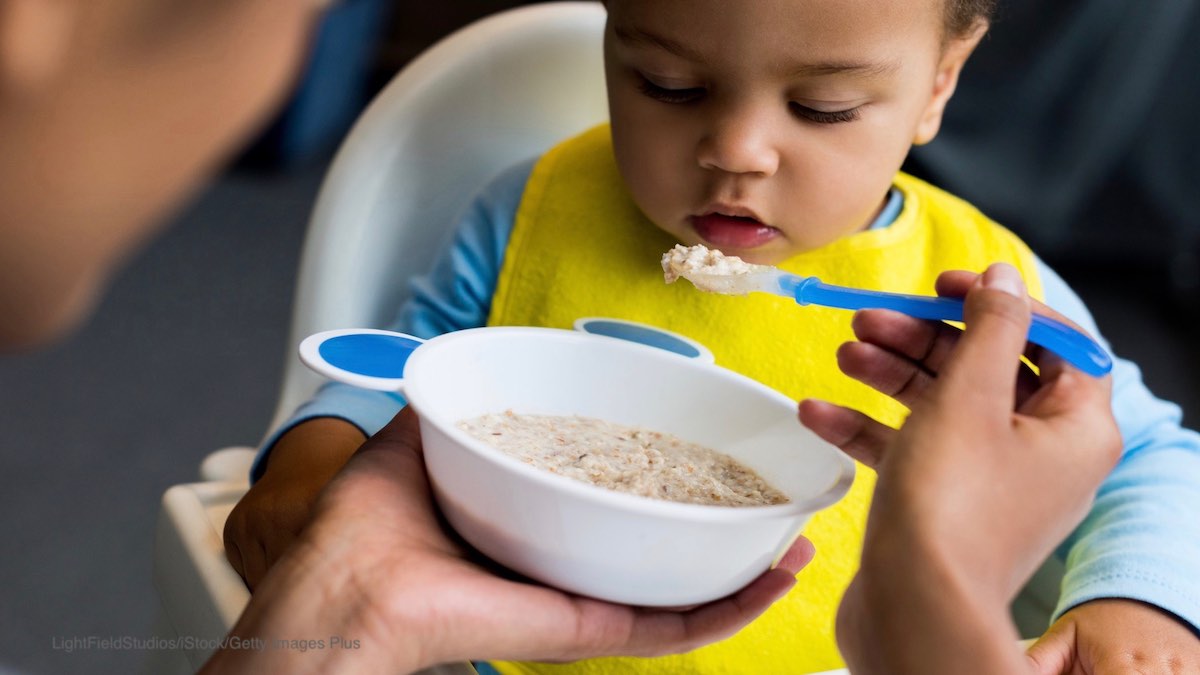Consumers Union, the organization behind Consumer Reports, is concerned about heavy metals content in toddler and baby foods. They are asking the FDA to take steps to protect children from these contaminants in their food supply.

Heavy metals, such as cadmium, lead, and inorganic arsenic, can cause serious health problems in babies and toddles. The most serious issues are carcinogens, and cognitive and reproductive effects. Babies and young children can have lower IQ and behavior problems when they are exposed to heavy metals.
Dr. James E Rogers, director of food safety research and testing at Consumer Reports said in a statement, “Babies and toddlers are particularly vulnerable due to their smaller size and developing brains and organ systems. They also absorb more of the heavy metals that get into their bodies than adults do.”
Consumer Reports’ food safety team analyzed 50 nationally distributed foods made for babies and toddlers. Those foods included baby cereals, packaged fruits and vegetables, packaged entrees, and packaged snacks. They found that every product had measurable levels of at least one of those heavy metals. About 68% of the products had “worrisome levels” of at least one heavy metal. More than 90% of parents with children under the age of three use these foods at least occasionally.
Among the 50 foods tested, 15 would pose potential health risks to a child who regularly ate just one serving or less per day. And unfortunately, certified organic foods were just as likely to contain heavy metals as foods that were conventionally produced. But, 16 of those products had lower levels of the heavy metals, which Consumer Reports said suggests that all baby food manufactures should be able to achieve those results.
A recent survey conducted by consumers Union of more than 3,000 respondents found that 4 in 10 parents thought children’s packaged foods were lower in heavy metals than other packaged foods. About half of the respondents thought that baby food is regulated more stringent than other packaged food.
Not only is exposure to heavy metals at an early age dangerous, but these effects can be impossible to reverse. And the risks grow over time, because these compounds can accumulate in the kidneys and other organs. Consuming small amounts of heavy metals over a long period of time can increase the risk of developing bladder, lung, and skin cancer; reproductive and cognitive problems; and type 2 diabetes.
Most of the products Consumer Reports tested were from the two biggest baby food manufacturers in the country: Beech-Nut an Gerber. Other brands they tested were Baby Mum-Mum, Earth’s Best, Ella’s Kitchen, Parent’s Choice (Walmart), and Sprout, among others.
Products made with rice had the worst levels. That ingredient can contain large amounts of inorganic arsenic because of how and where it is grown. Snack foods were most problematic, most likely because of their rice content. Snacks are the most common type of packaged product given to babies and toddlers.
In 2016, the FDA did propose limiting inorganic arsenic in infant rice cereal, and proposed limiting inorganic arsenic in apple juice to 10 ppb. But neither limit was finalized.
Consumer Reports has a list of the products they tested and the daily limit, along with the number of servings of each product that can pose a risk in a chart. Experts stress that parents should be concerned but not alarmed. Making changes to a child’s diet can reduce the change of adverse health effects. And there are other variables that affect how one person responds to heavy metals, including genetics and the overall quality of diet.
And Consumer Reports would like the FDA to set limits for heavy metals in baby foods. The agency should set aggressive targets, create and enforce benchmarks, and finalize proposed guidelines already set. Manufacturers can source their ingredients from areas of the country and globe that have less heavy metal contamination.
Consumer Reports also said that if you are concerned, have your child tested. Limit the amount of rice cereal your child eats, and if you cook rice, cook it in a large amount of water and drain it well to reduce arsenic content. Limit packaged snacks, be wary of fruit juice, pick the right fish, and feed your child Whole Foods that are low in heavy metals, such as bananas, beans, cheese, grapes, yogurt, and peaches.




